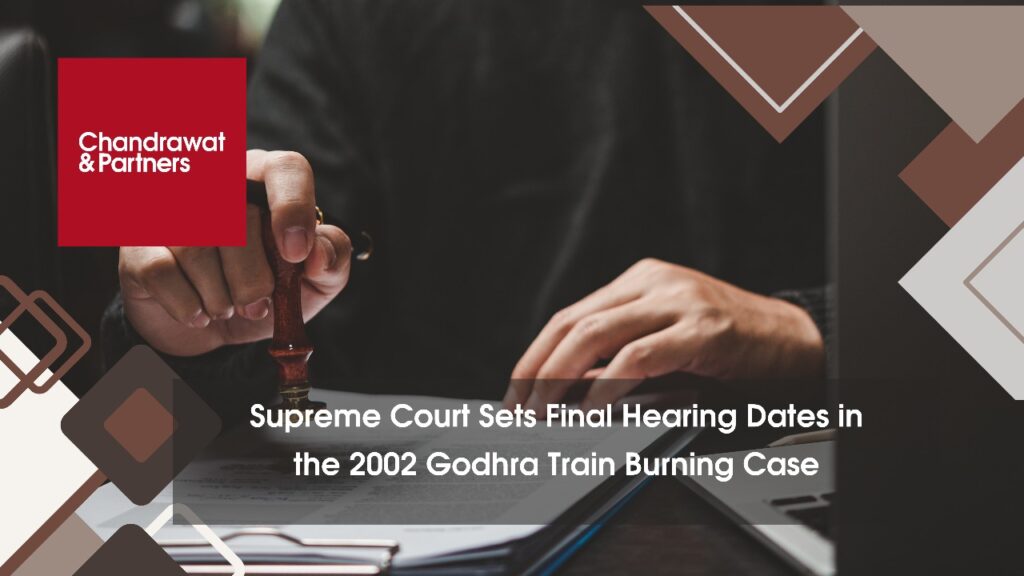Home > Recent Judgements > Supreme Court Sets Final Hearing Dates in the 2002 Godhra Train Burning Case
April 25, 2025
Supreme Court Sets Final Hearing Dates in the 2002 Godhra Train Burning Case
The Supreme Court of India has scheduled the final hearing of appeals in the 2002 Godhra train burning case for May 6 and 7, 2025. This marks a significant development in a case that has remained a focal point of legal and political discourse for over two decades.
Background: The 2002 Godhra Incident
On February 27, 2002, the Sabarmati Express train was set ablaze in Godhra, Gujarat, resulting in the tragic deaths of 59 people, mostly Hindu pilgrims returning from Ayodhya. The incident triggered widespread communal riots across Gujarat, leading to significant loss of life and property.
Legal Proceedings and Convictions
Following the incident, the Gujarat Police arrested several individuals, leading to multiple trials and convictions. In 2011, a special court convicted 31 individuals, sentencing 11 to death and 20 to life imprisonment. However, in 2017, the Gujarat High Court commuted the death sentences to life terms, a decision that has remained contentious.
The state government challenged the commutation, seeking restoration of the original death sentences. At the same time, several convicts appealed against their convictions—leading to the current proceedings before the Supreme Court.
Supreme Court’s Intervention
In September 2024, a bench led by Justices J.K. Maheshwari and Rajesh Bindal scheduled the final hearing for January 15, 2025, stressing that no further adjournments would be granted. The Court expressed dissatisfaction over repeated delays, stating:
“We have granted adjournment 5–6 times. For the past year, I have been adjourning the matter.”
The hearing was later rescheduled to May 6 and 7, 2025, with the Court noting that the proceedings would require at least three days. The Gujarat government also filed separate appeals challenging the High Court’s commutations.
Key Legal Issues at Stake
- Restoration of Death Sentences: Should the Supreme Court reinstate the death sentences for the 11 convicts whose penalties were commuted by the High Court?
- Individual Culpability: Clarifying the specific roles played by each convict to determine the appropriateness of their respective sentences.
- Bail Applications: Multiple convicts have pending bail applications. Some have already received bail on medical grounds or after serving long prison terms.
Public and Political Repercussions
The Godhra train burning case has had profound and long-lasting impacts on communal relations and politics in India. The upcoming Supreme Court hearing is expected to attract significant public and media attention, possibly influencing political discourse and public sentiment.
Conclusion
The Supreme Court’s decision to proceed with the final hearing underlines its intent to resolve long-pending matters with fairness and urgency. The outcome will not only shape legal precedent but also resonate through India’s sociopolitical fabric.
For more information or queries, please email us at
[email protected]





